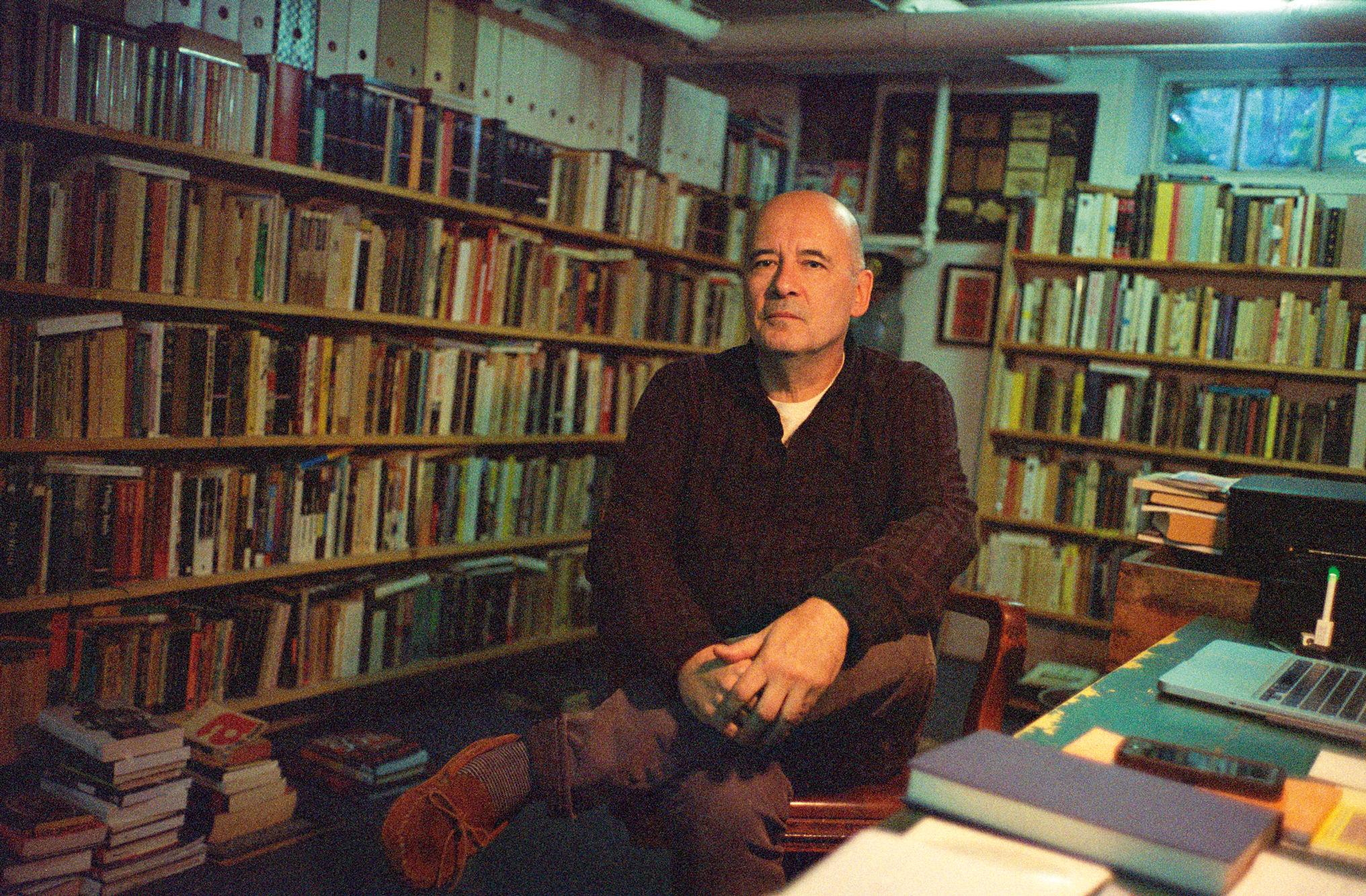Purple Magazine
— Purple 76 Index issue #29 S/S 2018
Sante luc
in 1991 luc sante wrote a dizzying look
at the seedy side of old new york in his book low life
he gave us a taste of the bowery before it was rotting
with galleries and upscale dining
he resided in the now-legendary poets’ building on east 12th
street during the rough-and-tumble 1980s with neighbors like richard hell rene ricard and richard prince
sante — who recently published the other paris
a love story about the forgotten history of our favorite european stomping ground — is a contemporary man
of letters resuscitating the half-remembered foot soldiers
of society one street corner at a time
portrait by ALEXIS DAHAN
interview by bill powers
BILL POWERS — We are sitting inside The St. Regis Hotel, at the King Cole Bar, in New York. This is where Marcel Duchamp told Calvin Tomkins to meet him for the first time. Do you believe…
